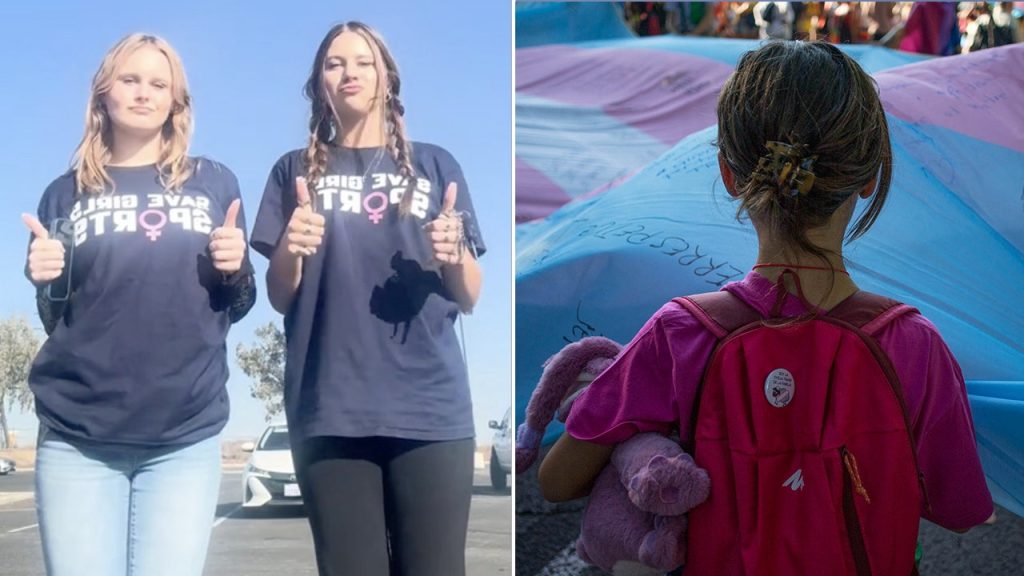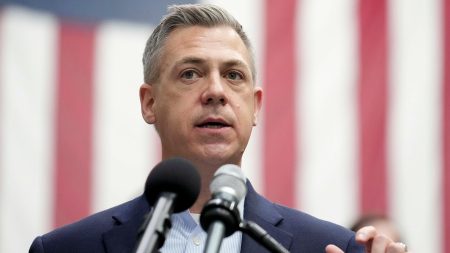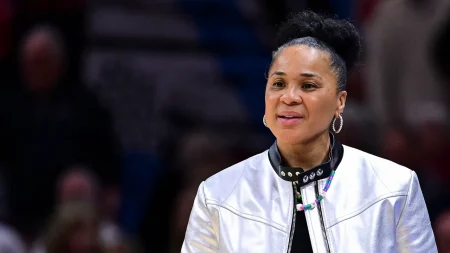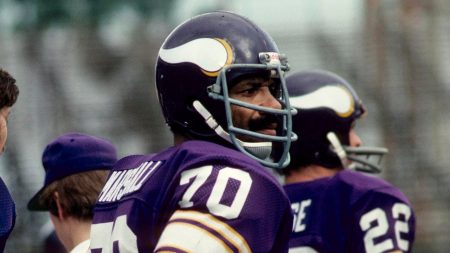The clash between inclusivity and fair play in girls’ sports has found its latest battleground at Martin Luther King High School in Riverside, California, where a dispute over t-shirts advocating for “Save Women’s Sports” has ignited a national debate and put the spotlight on the complex intersection of transgender rights and athletic competition. Two female cross-country runners at the school allege that their shirts, expressing their concern about the inclusion of a transgender athlete on their team, were likened to swastikas by school administrators, a comparison that has drawn widespread condemnation and further inflamed tensions. The presence of the transgender athlete, who allegedly displaced a female runner from a varsity spot, forms the backdrop of this escalating controversy.
The situation gained further national attention when student athlete Rylee Morrow delivered an impassioned speech at a school board meeting, expressing her concerns about sharing a locker room with a biological male and highlighting the perceived inherent advantages transgender athletes possess. Morrow’s subsequent appearance on Fox News amplified her message, emphasizing the perceived injustice and criticizing the school’s handling of the situation. This controversy aligns with a broader national movement advocating for the protection of women’s sports, a movement gaining traction among young female athletes across the country.
The dispute over the t-shirts intensified after a viral TikTok video, since deleted, showed students claiming the school implemented a new dress code to suppress the “Save Women’s Sports” message. According to Sophia Lorey, outreach director for the California Family Council, over 150 students subsequently wore the shirts in an act of defiance, leading to alleged disciplinary action, including hours spent in the principal’s office. Lorey asserts these students intend to continue their protest every Wednesday, potentially leading to further legal action and highlighting the First Amendment implications of the school’s response. The incident echoes Lorey’s own legal victory regarding free speech related to transgender athletes in sports, bolstering her conviction that the students’ rights are being violated.
This incident has garnered widespread attention and support from prominent figures like former NCAA swimmer Riley Gaines, who has actively encouraged her followers to voice their concerns to the school. Legal representation for the two athletes involved in the lawsuit has also been secured, further solidifying the legal battle lines. The Riverside Unified School District (RUSD) has defended its decision to accommodate the transgender athlete, citing California state laws mandating the protection of transgender students in athletics, while remaining silent on the t-shirt controversy.
The broader context of this conflict resides in the burgeoning national movement to address the participation of transgender athletes in women’s sports. This movement has found significant support among young female athletes, particularly in states with laws protecting transgender athletes’ rights, further fueling the ongoing debate. Recent events, such as high school students in New York planning a walkout to protest transgender inclusion and the forfeit of a volleyball game by Stone Ridge Christian High School in California, underscore the growing momentum of this movement. The controversy surrounding the volleyball team at Half Moon Bay High School, including booing directed at a transgender athlete and potential consequences for the school, further illustrates the polarization surrounding this issue.
California stands as a focal point in this debate, with its long-standing laws protecting transgender athletes’ rights. The case of San Jose State University’s transgender volleyball player Blaire Fleming, and the ensuing lawsuits filed by teammate Brooke Slusser alleging discomfort with shared accommodations, exemplifies the complexities and sensitivities involved. This controversy gained significant national traction, impacting the recent presidential election and further highlighting the political ramifications of this issue. The emergence of XX-XY Athletics, an apparel brand supporting female athletes who have competed against transgender individuals, further demonstrates the cultural and economic impact of this ongoing debate.










